
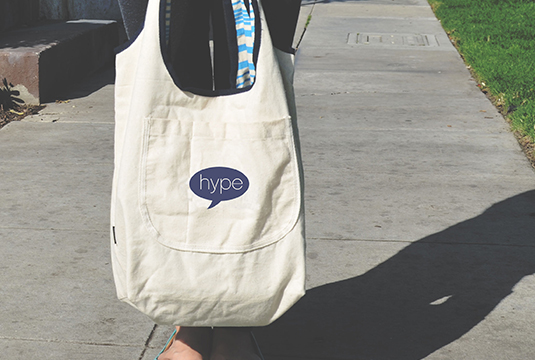
Last updated on January 27th, 2022 at 07:51 pm
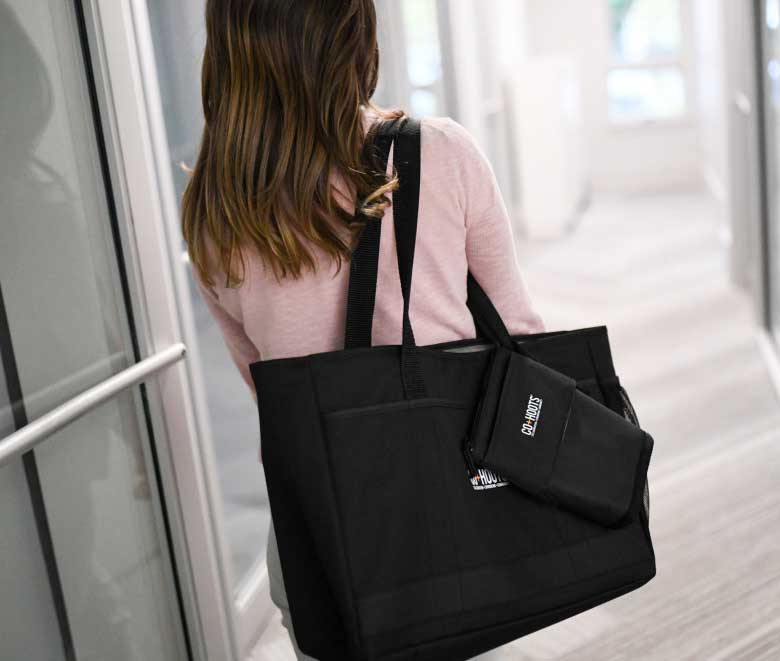
Promotional tote bags have become a way of life. Whether it is for grocery runs, picnics or beach days, reusable bags or totes are kind of a necessity in every household. Is your business taking advantage of this to produce a batch of imprinted promotional reusable bags with your logo? In this article we will explain the different materials and fabrics, so you have a better understanding to get the right promotional tote bag for your company and event.
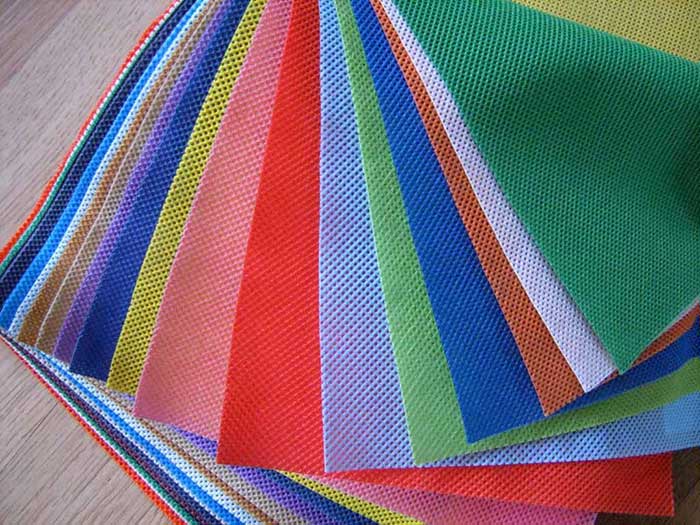
Non-woven polypropylene is the material that we used often on promotional grocery tote bags. They are flat, porous sheets that are made directly from separate fibers. They are not made by weaving or knitting and do not require converting the fibers to yarn. The fabric is usually pressed together thermally, chemically or mechanically.
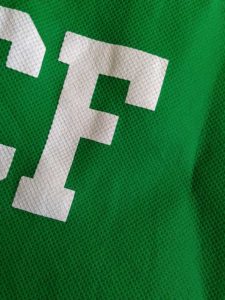
Non-woven polypropylene is lightweight, non-absorbent and affordable. It makes a great option as grocery totes. However because of the slightly uneven surface of the fabric, fine details of the imprint may be lost. Simple logos are text work best on this material. There are also laminated non-woven grocery totes, the glossy coating makes it water resistant, and can be printed in vibrant full color. If you’re wanting to promote your company, non woven promotional bags could be the perfect method!
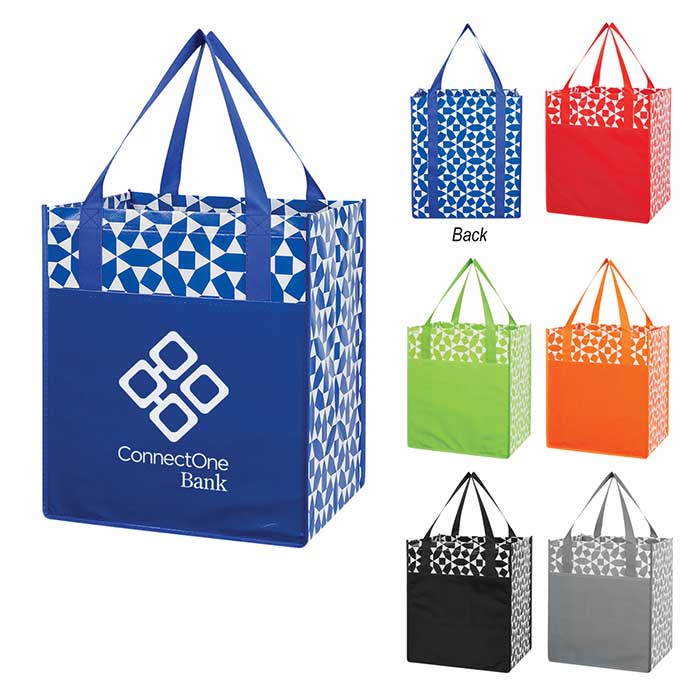
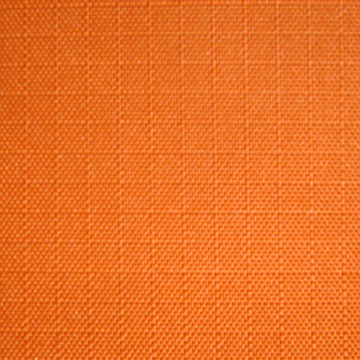
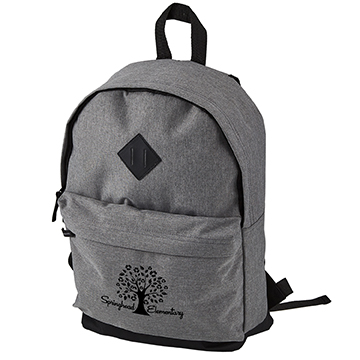
Polyester is often found in messenger bags, backpacks, drawstring bags, duffels, suitcase, caps, t-shirts and many other items. It is a woven fabric so it is stronger than non-woven polypropylene. Its moisture-wicking ability and being lightweight makes it an excellent choice for performance apparel.
Polyester is also the material of choice for full color dye-sublimation. This imprint method on promotional products allowing for endless possibilities for eye catching designs and colors. With full color dye-sublimation, bags such as fanny packs and backpacks can be printed then cut and sewn into shape.
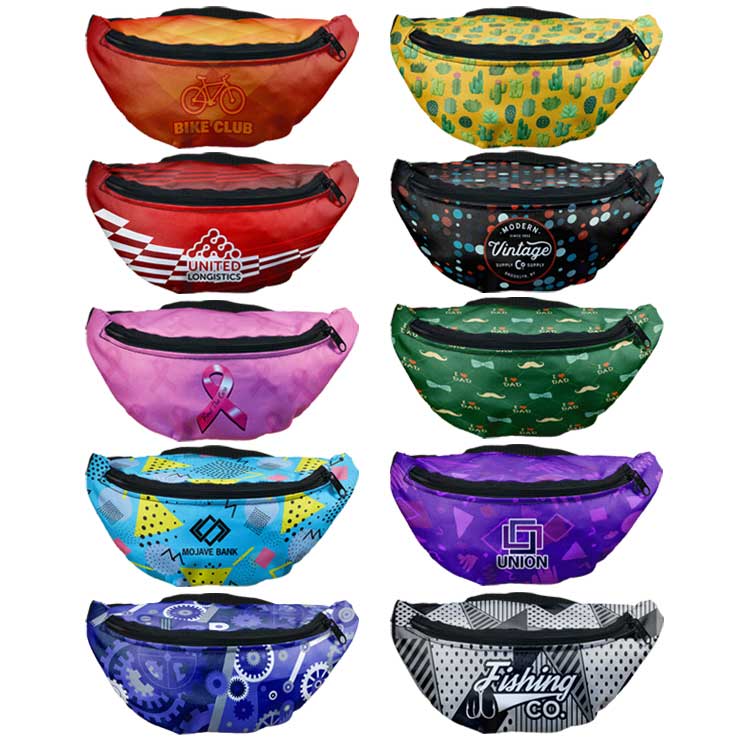
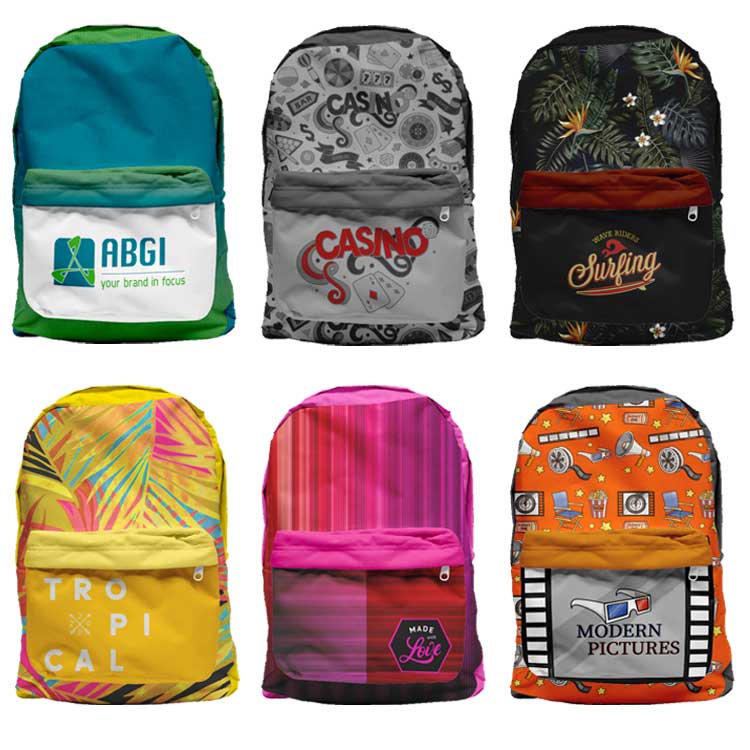
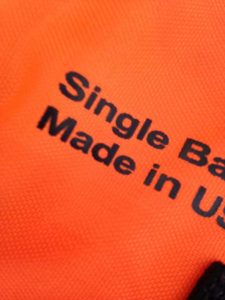
Nylon is a strong and durable material that is often found in backpacks, drawstring bags, umbrellas. It is a woven fabric that was invented in the 1930s, when it was mostly used in military for making parachutes and tents. It was only made available to public much later. Nylon is a smooth fabric, which works for promotional products because it enables greater printing details. It is also stretchable, strong and durable, making the products long lasting.
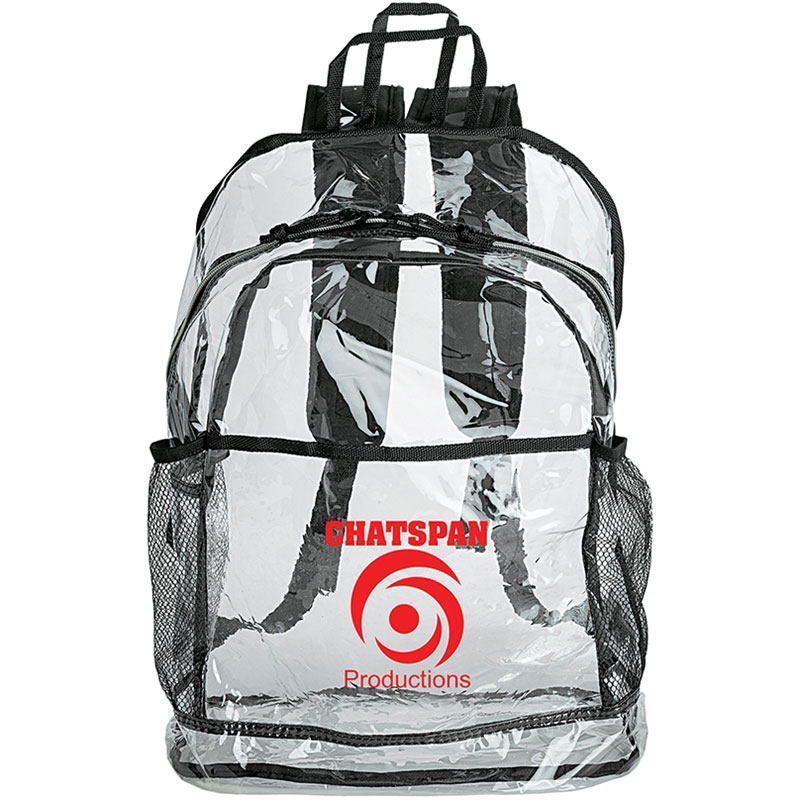
Custom printed clear vinyl bags are convenient for stadium, concert venues or crowded areas. The clear materials makes it easy for security to see what is inside the bag. One thing to note about clear vinyl material is that only one color imprinted is allowed. Due to the nature of the material, simple logo design with less details will print best.
Cotton is natural and we wear plenty of it. Cotton is a strong woven material that is washable and durable enough that will last for many many uses. The natural color of cotton tote bag is great canvas for many great logo design. For clients who are looking for eco-friendly promotional items in their campaign, this is one must-have!
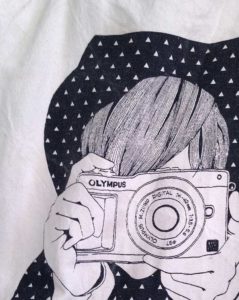
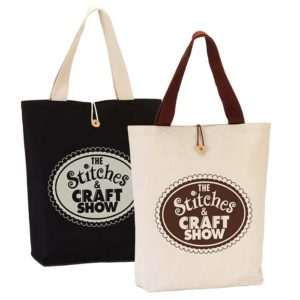
Generally cotton that is over 10 oz is considered cotton canvas. The most durable canvas material is typically used as a boat tote bag which makes it the most durable of bags. The heavier weight cottons will feel firm and the material will be stiff to the touch. It is the strongest of all the cotton choices. A cotton canvas boat tote is as strong as a 600D nylon bag! This all-natural and tough material is more expensive to make into a tote but it will last for years.
These are all different ways to measure the strength of a particular material. A better understanding will help you decide which material is best for your needs.
GSM measures the fabric density in terms of grams per square meter. It’s more often used in non-woven fabric. The popular grocery totes are normally between 70 to 100 GSM. The higher GSM is generally thicker, more resistant to tears and damage, than lower GSM among the same fabric.
Denier is often referred as the D in “600D Polyester”. It is the unit of measure to describe the linear mass density of a fabric. When comparing two fabrics using Denier, the higher Denier means it’s thicker and stronger, as long as it is made of the same material. So even 400D Nylon is less in Denier than 600D Polyester, it is still a stronger material.
With all these different materials, color choices, and shapes, how does one choose what’s right?
Here are a few things to consider:
Questions you need to ask such as, who is going to use this bag? How will they be used? Does the logo have a lot of fine detail? Will it be a giveaway item? Will it be a premium gift? What is the perceived value by the customers? When you have answers for these questions, it will be easier to narrow down your choices.
Example uses:
A grocery who is giving out free shopping bags: non-woven polypropylene will be best, it is affordable and can be produced quickly. These promotional grocery totes could be perfect for you.
A company who is giving messenger bags to its sales staff: 600D or better polyester or nylon material will be strong enough to withstand travel and it looks great with logo embroidery.
A cosmetic or clothing company who wants to give its customer a gift with purchase: A strong sturdy cotton canvas boat tote with screenprinted logo.

Shirley is the co-founder of Garuda Promo and Branding Solutions. With a background in print production and graphic design, she specializes in promotional products marketing, creating end-products that aligns with her client's marketing goals and brand strategy.
